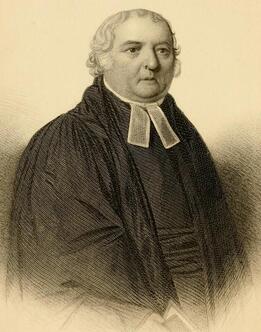 “Abraham shall surely become a great and mighty nation, and all the nations of the earth shall be blessed in him.” Genesis 18:18 Chaplain to Convicts Samuel Marsden (1764-1838) was born in Farsley, Yorkshire, and the son of a Wesleyan farmer. He won a scholarship and studied for the Church of England ministry at Cambridge. Samuel Marsden was offered the influential post of Chaplain to the convict colony of New South Wales in Australia. His college friend, the Evangelical Member of Parliament, William Wilberforce, organised this appointment. Within a month of marrying Elizabeth Fristan, Samuel was ordained and sent off by ship to New South Wales. 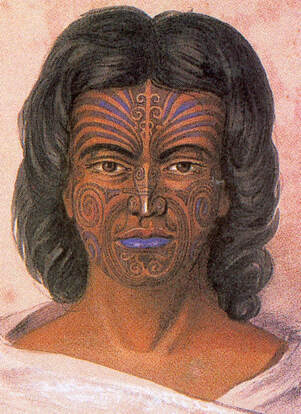 Missionary to Deportees From 1787, Australia was primarily an extensive prison, where criminals were deported. In 1794, Samuel Marsden and his wife stepped ashore to begin an unusual and memorable Missionary work. The heathen to which he was called to minister were not people to whom the benefits of civilisation had not come; these were those who had spurned and abused those benefits. These were not heathen, who had never heard the Name of Jesus; these openly profaned and blasphemed the Holy Name of Christ. Those to whom Samuel Marsden was sent were not savages who had never seen a white man before; these were whites who had violated the laws of civilization. Samuel Marsden’s first sermon in Australia was from Luke 4:18, proclaiming deliverance to the captives. Controversial On landing near Port Jackson, present day Sydney, Marsden was immediately made the Magistrate. Being compelled to combine both demanding vocations in one person involved Marsden in one controversy after another. Samuel and Elizabeth Marsden had eight children, 5 girls and 3 boys. Visionary He was also instrumental in persuading merchants and manufacturers of the importance of developing Australia as a wool-producing nation. Marsden introduced sheep and vineyards to New Zealand and was the first to ship wool from Australia to England. Reformer Inspired by the renowned prison reformer, Elizabeth Frye, Samuel tried his utmost to provide for female prisoners, to establish a school for orphans and to right the wrongs suffered by aborigines. His attempts to uphold principles of justice placed his life in danger, and he endured many threats to his life. On one occasion, he was compelled to travel to England to call the attention of the government to unacceptable conditions and to secure intervention. He presented the grievances to King George III himself. This he did, despite the dangers of travelling on the high seas during the Napoleonic Wars. Missionary to the Cannibals By the time Samuel had returned to Australia, his vision had also extended to bring the Gospel of Christ to the cannibals of New Zealand. In 1809, sixty-seven seamen of the Boyd were killed, cooked and eaten by the Maoris at Whangaroa Bay. In 1816, fourteen sailors were stranded at Poverty Bay and eaten by the cannibals. In 1820, a whale ship was cast ashore at Wanganul and all but two of the crew were eaten by the natives. When a Maori chief died in March, Marsden witnessed the depths of degradation, and hold of superstition, as the widow of the chief hanged herself with the approval and applause of her parents and brothers. On Christmas Day, 1814, Samuel conducted the first public worship service in New Zealand. He preached from Luke 2:10 “Fear not: for, behold, I bring you good tidings of great joy, which shall be to all people.” The Maoris he preached to were naked, with human teeth strung around their necks as ornaments. They all carried spears and wore fearsome war paint. 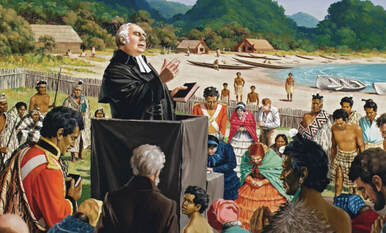 Missionary to New Zealand He was greeted by further trials, disputes and conflicts. On one of his journeys to New Zealand, certain missionaries had to be rebuked and one was expelled. Other missionaries who had deserted the field in Tahiti, dejected and despondent, were uplifted and encouraged to return to their field. To improve communication between the scattered missionary works in the South Seas, Marsden purchased a ship. In New Zealand, Samuel interceded between two warring parties and secured peace. From Cannibalism to Christianity Samuel was to return to New Zealand on a further six occasions. He was never allowed to forget the prevalence of cannibalism among the tribes. One village chief, in an attempt to reassure him that he need not worry about the safety of the missionaries he was leaving amongst them, declared: “the flesh of a New Zealander is sweeter than that of the European because the white people eat so much salt!” On one trip he wrote of natives killing and eating a young girl. One woman confessed that she had killed and eaten 19 children. Marsden learnt Maori, taught Maoris to speak, read and write in English and began the work of translating the scriptures into Maori. Twenty years were to pass before he saw the first conversions to Christ in New Zealand. 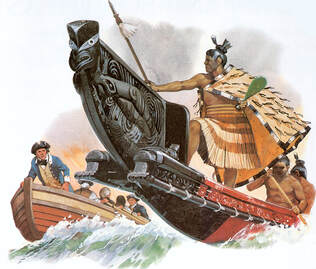 Rescuing the Perishing On one occasion, a man wanting to murder Marsden simulated drowning. When Samuel plunged into the sea to save the man, he was attacked and dragged under the water. By God’s grace Samuel managed to restrain the violent man and bring him safely to shore. There he succeeded in bringing this murderous individual to repentance and faith in Christ. A Magnificent Legacy Samuel Marsden was much involved in introducing education, standards of justice and law and order in New Zealand. However, it was his sad experience to continually be a victim of malicious and unfounded charges throughout his time in Australia. His fearless denunciation of sin made him numerous enemies, but in the final analysis: Samuel Marsden was a man who upheld justice impartially, and who diligently preached the Gospel. Throughout his life he remained a humble, hospitable and generous Christian, who laid the foundations for the Christian Church in Australia and New Zealand. By 1845, it was reported that most of the Maoris had embraced Christianity. “Listen to Me, you islands, hear this you distant nations… you are My servant Israel …to restore the tribes of Jacob… I will make you a light for the gentiles that you may bring My Salvation to the ends of the earth.” Isaiah 49:1-6 Dr. Peter Hammond 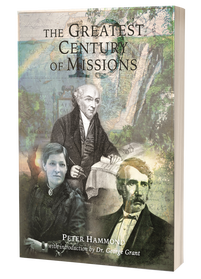 This article was adapted from a chapter of The Greatest Century of Missions book (224 pages with 200 photographs, pictures, charts and maps), available from Christian Liberty Books, PO Box 358 Howard Place 7450, Cape Town, South Africa, Tel: 021-689-7478, Fax: 086-551-7490, Email: [email protected], Website: www.christianlibertybooks.co.za.
1 Comment
16/2/2024 01:59:52
Hi,
Reply
Leave a Reply. |
More Articles
All
Archives
December 2022
|
"And Jesus came and spoke to them, saying, “All authority has been given to Me in heaven and on earth.
Go therefore and make disciples of all the nations, baptizing them in the name of the Father and of the Son and of the Holy Spirit,
teaching them to observe all things that I have commanded you; and lo, I am with you always, even to the end of the age.” Amen.” Matthew 28: 18-20
Go therefore and make disciples of all the nations, baptizing them in the name of the Father and of the Son and of the Holy Spirit,
teaching them to observe all things that I have commanded you; and lo, I am with you always, even to the end of the age.” Amen.” Matthew 28: 18-20
|
P.O.Box 74 Newlands 7725
Cape Town South Africa |
|
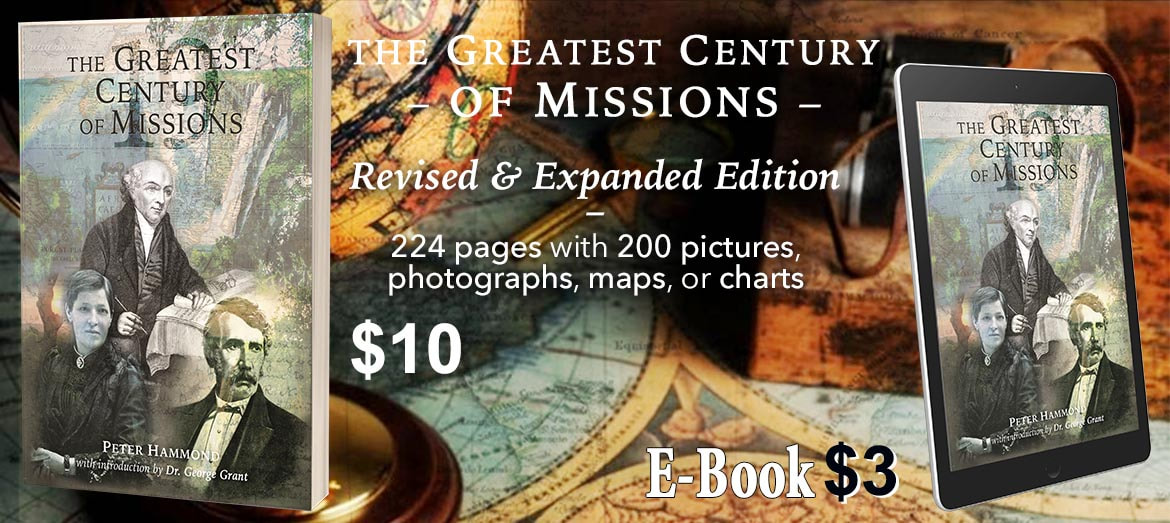
 RSS Feed
RSS Feed
